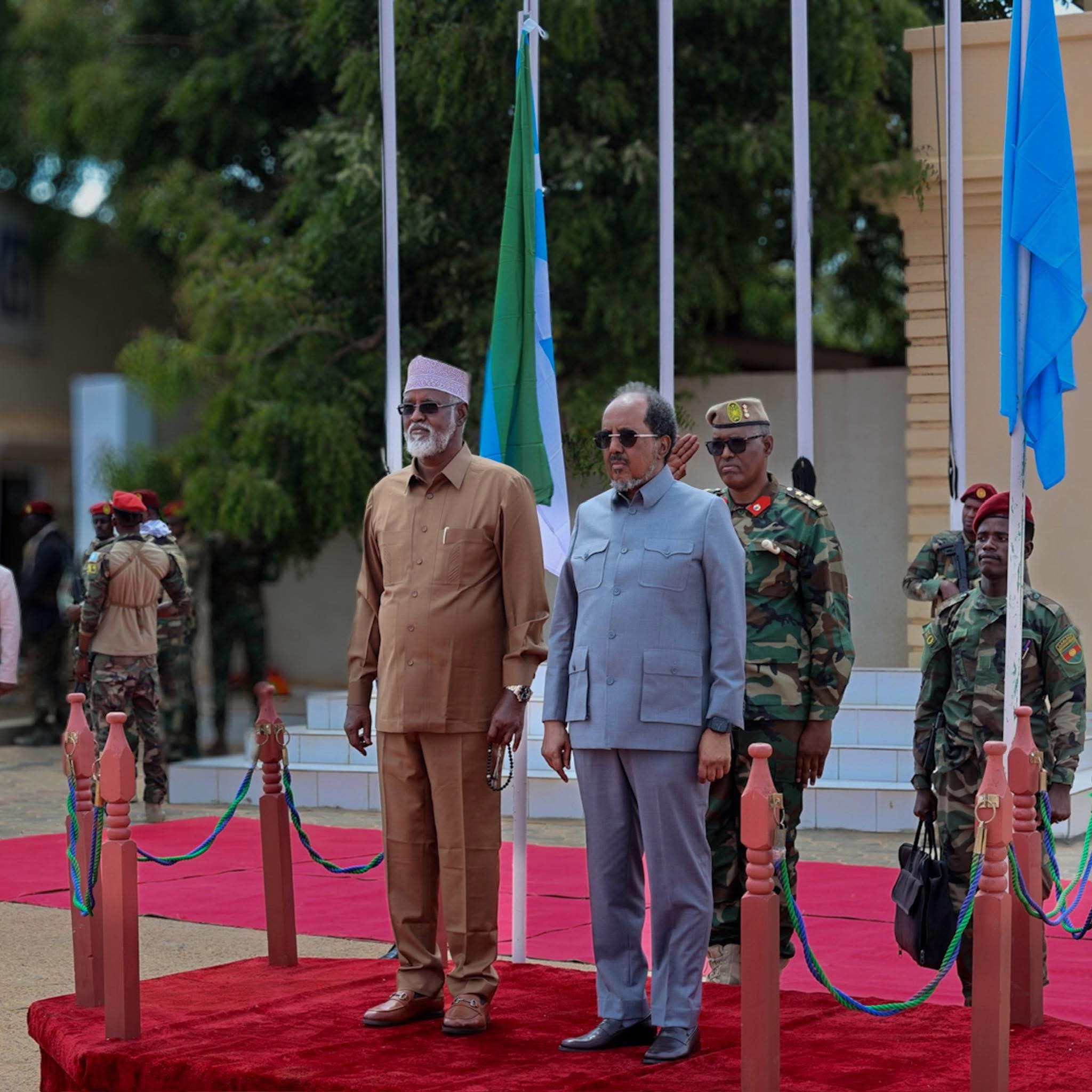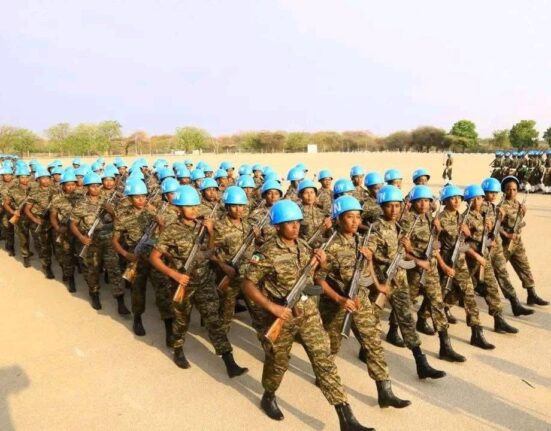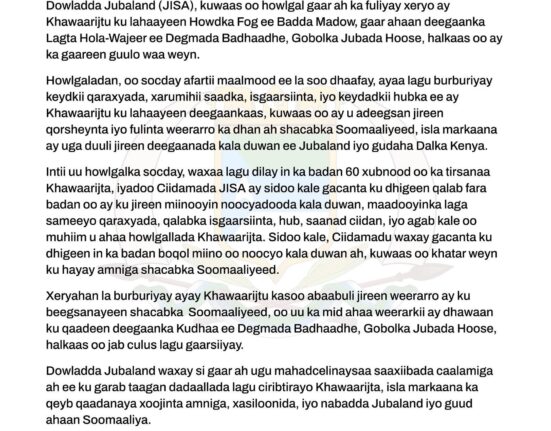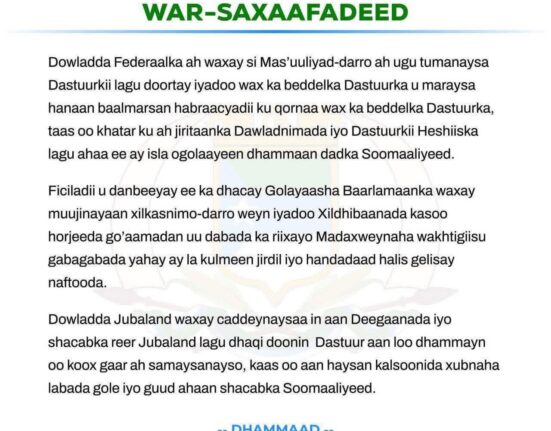Negotiations between the Federal Government of Somalia and the Jubbaland administration led by President Ahmed Mohamed Islam (Ahmed Madobe) have officially collapsed, plunging Somalia into renewed political uncertainty and exposing deep fractures within the country’s federal system.
Part I – Ahmed Madobe’s Strategic Gain
Despite the breakdown, political observers say President Ahmed Madobe emerges in a stronger position. The collapse allows him to project independence from Mogadishu and reaffirm his legitimacy as the elected leader of Jubbaland.
Analysts believe Madobe’s administration now enjoys greater regional and international attention, particularly from partners who view him as a stabilizing force in southern Somalia. The failed talks also enable him to solidify Jubbaland’s internal unity and strengthen ties with other federal member states such as Puntland, which share concerns over Villa Somalia’s centralization attempts.
Part II – Hassan Sheikh’s Political Challenge
For President Hassan Sheikh Mohamud, the collapse represents a serious political blow. His long-stated goal of achieving “national unity and federal cooperation” appears increasingly out of reach.
With his term nearing its end, Hassan Sheikh now faces growing criticism over strained relations with regional states. The failure to secure an agreement with Jubbaland could further isolate Villa Somalia and weaken the federal government’s credibility ahead of any future electoral or constitutional discussions.
Analysts warn that the continued rift between Mogadishu and Kismayo may disrupt federal coordination, delay political processes, and heighten mistrust among Somalia’s political elites.
— HornCurrent News | October 2025








